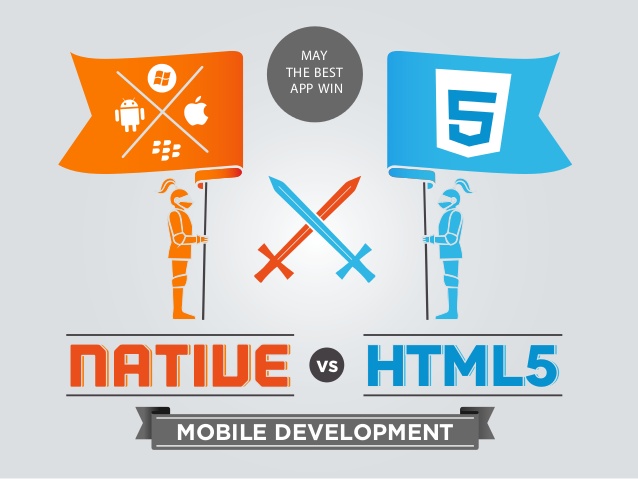As the technology world is emerging day by day, a new entrepreneur is changing the world with his innovative idea forcing the barriers of limitations and taking a quantum leap towards the Mobile Application Sector. But when it comes to the development of the app, each one the innovator faces the dilemma that which kind of development does he requires, Native Apps or Hybrid Apps and what is the difference between them. So, we are here to finally discuss all about native and hybrid apps and will all your queries and suggestions related to the differences between them.
Basic Introductions-
The world of development is like an adventurous journey but a little confusing when it comes to choose the right platform required to build the application, it all depends on the budget and the features you want in your app. Basically, we are here to discuss about the types of Apps and there are Native,Web and Hybrid Apps. The most important thing is to decide which one is right for you,
Native Apps –
It is more of a platform specific (Android or iOS) and requires special tools and kits to design and develop the application. For example if you want an app consists heavy modules and has more features than you should opt for native application development.
Major Features of Native Apps –
- They offer more speed,feature and easy user experience
- They have responsive and fast UI/UX
- Can be easily integrated with all the native features such as GPS,Camera etc.
- People are more satisfied with the experience and is becoming more popular.
Surely Native App Development is better as it expands the horizons of development and does not restricts creators to add more features. But it is not recommended for startups who have a limited budget and require only minimal features in the apps.

Some Cons of the Native Apps are –
- Time Consuming
- Requires More Investment
- Can be only developed using special languages & tools
- Requires language specific Developers & Designers.
- Takes long term development with bugs
Hybrid Apps
Hybrid Apps enable to embed HTML5 apps inside a thin native container, combining and integrating the best elements of native and HTML5 apps. Major toolkits and SDK are present in the market such as PhoneGap, Cordova and several other minor tools. Developers are working hard to connect Java, HTML and CSS to build the ultimate hybrid apps that will surely cut the cost and time.
Pros of the Hybrid Apps –
- Data can be packaged on the Local as well as on the Server.
- Development process is similar as making a website.
- Takes less time and investment to Develop
- You can integrate the animations,graphics of the website
- Has Better Interface or UI
Cons of the Hybrid Apps –
- Often requires redesigning on various platforms
- Does not provides full root access
- Apps made on the Hybrid Platform are much slow
Final Verdict – In the end, it all depends on which type of app do you need. If you just to provide basic information with necessary features, then you should definitely opt for Hybrid App development as takes less time to build.
Furthermore, if you have a solid algorithm that requires heavy development and root access to the all the device’s features, then you should go for the Native App development.
Investment and Team also play an important when taking this decision. If you are capable to invest a lot of capital into the development and testing of the app, then Hybrid App development is best suited for small and medium app startups. I personally recommend that you should go with the Native App development if you are willing to invest a decent amount in the app development and design.



